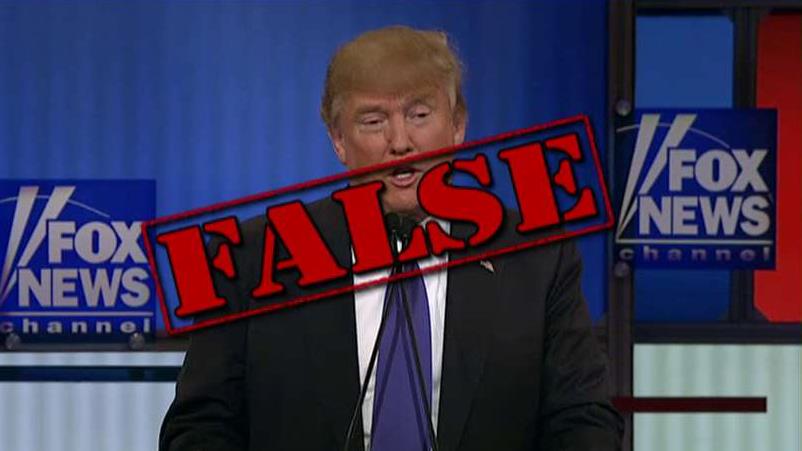Historical Context of the Fox Debate

The “fox” and “hedgehog” metaphor, popularized by the philosopher Isaiah Berlin, is a powerful tool for understanding different approaches to knowledge and decision-making. It draws inspiration from a famous Greek fable, which posits that the fox knows many things, while the hedgehog knows one big thing. This dichotomy has been applied to various fields, including politics, where it provides a framework for analyzing different leadership styles and foreign policy strategies.
Origins of the Metaphor, Fox debate
The “fox and hedgehog” metaphor finds its roots in ancient Greek literature, specifically in the writings of the poet Archilochus. Archilochus, known for his satirical verses, penned the following lines: “The fox knows many things, but the hedgehog knows one big thing.” This proverb encapsulates the essence of the metaphor, highlighting the contrast between a broad, diverse understanding (the fox) and a deep, focused knowledge (the hedgehog).
Historical Figures and Their Archetypes
The fox and hedgehog dichotomy has been applied to numerous historical figures, offering insights into their intellectual and political approaches.
- Foxes:
- Niccolò Machiavelli, the renowned Italian Renaissance political theorist, is often considered a prime example of a fox. His work, *The Prince*, emphasizes the importance of pragmatism, adaptability, and deception in achieving political goals. Machiavelli believed that rulers should be willing to act in ways that might be considered morally questionable if it serves their interests.
- Otto von Bismarck, the “Iron Chancellor” of Prussia, was a master of Realpolitik, a foreign policy approach that prioritizes national interest over ideology or moral considerations. He was known for his shrewd diplomacy, his ability to negotiate complex alliances, and his willingness to use force when necessary to achieve his objectives.
- Hedgehogs:
- Plato, the ancient Greek philosopher, is often associated with the hedgehog archetype. His philosophy, centered on the concept of Forms, emphasized the importance of seeking eternal truths and principles. Plato believed that true knowledge lies in understanding these abstract Forms, which represent the essence of reality.
- Karl Marx, the German philosopher and economist, is another prominent figure often associated with the hedgehog. His theory of historical materialism posits that history is driven by economic forces and that the ultimate goal of society is the establishment of a classless communist state.
Modern Applications of the Fox Debate

The timeless wisdom of the fox and hedgehog metaphor finds resonance in the complexities of modern politics and decision-making. This dichotomy provides a framework for understanding the diverse approaches employed by leaders and policymakers, highlighting the strengths and limitations of each strategy.
Political Leaders and the Fox/Hedgehog Dichotomy
Identifying contemporary political figures with the fox or hedgehog archetype can provide valuable insights into their decision-making processes and the impact of their leadership.
- Foxes: These leaders are known for their adaptability, pragmatism, and willingness to embrace complexity. They are adept at navigating multifaceted issues, often seeking multiple perspectives and exploring diverse solutions. For example, Barack Obama, during his presidency, demonstrated a fox-like approach by engaging in extensive consultations and negotiations to achieve consensus on complex issues like healthcare reform and the Iran nuclear deal. He was willing to compromise and adapt his positions to secure political support and advance his agenda.
- Hedgehogs: These leaders often possess a strong central belief or ideology that guides their decisions. They tend to simplify complex issues, focusing on core principles and advocating for clear-cut solutions. Margaret Thatcher, known for her unwavering commitment to free-market principles, exemplifies the hedgehog approach. Her leadership style emphasized a single, dominant ideology, which she applied consistently to address a wide range of challenges, from economic policy to foreign relations.
Successful and Unsuccessful Strategies
The effectiveness of fox and hedgehog strategies varies depending on the context and the specific challenges faced.
- Fox Strategies: Successful fox strategies often involve navigating complex situations with flexibility and adaptability. For instance, during the COVID-19 pandemic, many countries adopted a fox-like approach, constantly adapting their policies and strategies based on evolving scientific knowledge and changing circumstances. Conversely, unsuccessful fox strategies can lead to indecision and a lack of clear direction, particularly when dealing with urgent crises or situations requiring decisive action.
- Hedgehog Strategies: Successful hedgehog strategies are often effective in promoting clarity and consistency, particularly in situations where a clear direction is needed. For example, during the Cold War, the United States’ hedgehog-like approach to containing Soviet expansion, based on the principle of containment, provided a clear framework for its foreign policy and military strategy. However, unsuccessful hedgehog strategies can lead to rigidity and an inability to adapt to changing circumstances. For example, in the face of global climate change, a purely hedgehog-like approach, focused on a single solution or technology, might not be sufficient to address the multifaceted nature of the problem.
Scenario Analysis: Fox vs. Hedgehog
| Scenario | Fox Strategy | Hedgehog Strategy |
|---|---|---|
| Negotiating a complex international agreement | Adapting to changing circumstances, seeking multiple perspectives, and engaging in compromise | Focusing on core principles and advocating for a clear-cut solution |
| Responding to a sudden economic crisis | Implementing a multifaceted approach, considering various economic indicators and adjusting policies as needed | Focusing on a single, dominant economic theory and applying it consistently |
| Leading a team through a period of organizational change | Encouraging diverse perspectives, adapting to feedback, and fostering a collaborative environment | Adhering to a clear vision and implementing a consistent strategy |
The fox debate, a lively discourse on the nature of cunning and adaptability, often echoes the complex dance between strength and resilience. This dynamic, much like the intricate relationship between Israel and Hamas, israel hamas leader , compels us to examine the intricate interplay of power and purpose.
Ultimately, the fox debate, like any meaningful dialogue, serves as a mirror to our own inner landscape, urging us to navigate the complexities of our world with wisdom and compassion.
The fox debate, much like the intricacies of a game of chess, unveils a complex interplay of perspectives. Just as the strategic brilliance of a chess master like alex highsmith on the football field demands careful consideration, so too does the fox debate require a nuanced understanding of the intricate dance between nature and human intervention.
Both scenarios invite us to contemplate the delicate balance of power, the unpredictable nature of life, and the ever-present need for wisdom and compassion in our choices.
